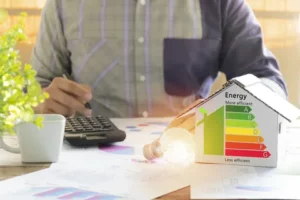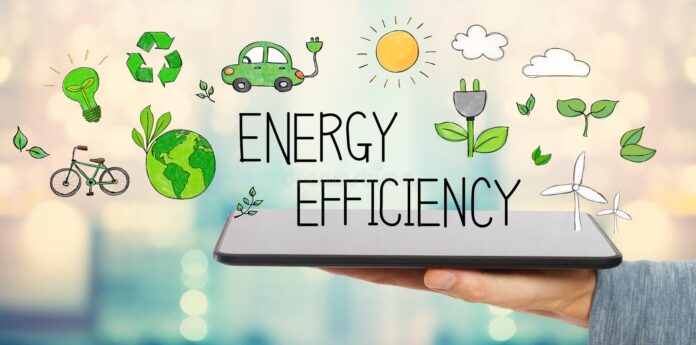Businesses today face many challenges, and one of the most critical is understanding energy efficiency and power consumption. Energy costs impact bottom lines and environmental footprints.
In the business sector, energy efficiency isn’t just a buzzword; it’s a crucial strategy for reducing expenses and carbon footprints. This guide will explore the basics of power consumption, energy measurements, and the importance of energy efficiency in a business setting.
For those who want to explore this further, a helpful resource is “https://www.utilitybidder.co.uk/compare-business-energy/watts-kwh-and-joules-what-does-it-all-mean/“.
Units of Energy and Measurements
Power consumption is measured in different units, with watt units being the standard. A watt is a unit of power that measures how much energy an appliance uses per second. Businesses must understand how energy is consumed and billed, which often involves converting between different units of power, like joules units and kilowatt hours (kWh).
The kilowatt hour is a crucial measurement for businesses, as it represents the amount of energy used when one kilowatt of power runs for one hour. Understanding kilowatt hours is essential for calculating electricity usage and costs. Accurate energy measurements can help businesses monitor energy consumption more effectively and identify areas for potential savings.
Impact of Power Consumption on Business Expenses
Power consumption directly impacts bills and overall expenses. With energy prices constantly changing, businesses must closely monitor their electricity usage. Efficient practices can lead to significant savings. Switching to LED bulbs, for example, reduces energy use by nearly half compared to traditional lighting.
Suppliers offer various rates and plans; selecting the right one can lower energy costs. Businesses should regularly review their energy bills to ensure they pay enough and explore opportunities to reduce electricity usage, such as optimising heating and cooling systems or investing in energy-efficient kitchen equipment.
 Reducing Carbon Dioxide Emissions
Reducing Carbon Dioxide Emissions
Beyond cost savings, energy efficiency helps reduce carbon dioxide emissions. Businesses contribute significantly to carbon footprints, and reducing energy consumption can help decrease environmental impact. Adopting efficient practices, such as using less energy during non-standard operating hours or on bank holidays, can reduce emissions and promote sustainability.
Companies can work with energy suppliers to explore renewable energy options. Renewable energy technologies are becoming more mainstream, offering viable alternatives to traditional power sources. Read more about renewable energy technologies moving from unconventional to mainstream here.
Practical Steps for Energy Efficiency
Energy efficiency involves practical steps that can be implemented across various business operations.
- Monitoring energy consumption with smart meters provides real-time data on power units, helping identify high-energy-consuming areas.
- Installing LED lighting and -efficient appliances reduces energy usage and cuts bills.
- Businesses should also optimise their heating, ventilation, and air conditioning (HVAC) systems.
- Proper maintenance and timely upgrades ensure these systems operate efficiently, reducing unnecessary energy consumption.
- Maintaining optimal temperatures without excessive heating or cooling helps save energy and costs during operating hours.
Energy Efficiency and Normal Operating Hours
Operating hours significantly influence energy consumption. Businesses that run outside standard hours or on weekends and bank holidays often experience higher energy use. Implementing energy-saving measures during these times can substantially reduce energy costs.
Businesses can adjust their schedules for lower energy prices during off-peak times. Additionally, shutting down non-essential equipment when unused can lead to potential savings. Simple actions like turning off lights and electronics when leaving the office can collectively reduce power consumption.
Potential Savings and Business Money Management
Energy-efficient practices translate into potential savings and improved financial management. Businesses can reinvest the money saved on electricity bills into other critical areas of operations.
Energy audits provide insights into areas where energy use can be optimised. Companies can identify patterns of excessive consumption and take corrective actions. Read about these barriers to remove for a greener future through proper business energy management!
Engaging with Energy Suppliers
Suppliers play a vital role in helping businesses achieve energy efficiency. Engaging suppliers to explore competitive energy prices and flexible contracts can significantly reduce costs. Businesses should regularly review and compare energy supplier offers to ensure they get the best deal.
Switching suppliers or negotiating better terms can result in lower electricity costs. Businesses should also inquire about incentives for using renewable energy sources or implementing efficient practices. Collaborating with suppliers to find solutions that align with sustainability goals benefits both parties.
Energy Efficiency in Commercial Spaces
Efficient commercial spaces contribute to lower electricity bills and enhanced productivity. Proper insulation, efficient lighting, and smart temperature control systems help reduce energy consumption. Businesses can create a comfortable and productive work environment while minimising power usage.
Incorporating efficient kitchen equipment in food-related businesses reduces electricity use without compromising quality. Upgrading to appliances with higher energy ratings ensures minimal energy wastage. Explore how to navigate budget-friendly options for sustainable living here.
Final Words
Knowing energy efficiency and power consumption is vital for businesses aiming to reduce costs and environmental impact. Implementing energy-efficient practices and technologies leads to significant savings and a smaller carbon footprint. Businesses can achieve sustainability and financial goals by actively managing energy use.
FAQs
- How can businesses track their energy consumption effectively?
Smart meters offer real-time monitoring of energy use, allowing businesses to track consumption patterns and identify areas for improvement.
- What role do energy audits play in energy efficiency?
Energy audits help businesses assess energy use, identify inefficiencies, and recommend cost-saving measures to enhance overall energy efficiency.
- How does technology contribute to energy efficiency in businesses?
Technology, such as smart building systems, enables businesses to control and optimise energy use, reducing consumption and lowering energy costs.







